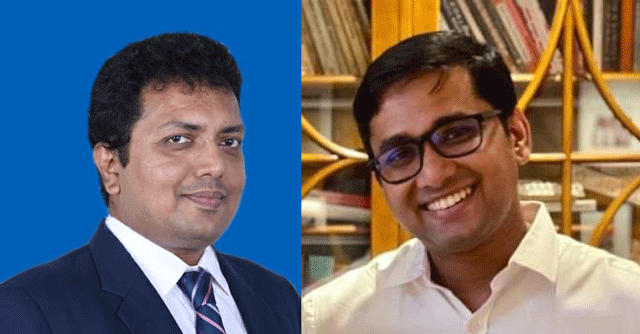
How AI and Big Data can help boost healthcare in India


The present pandemic has led to the acceleration in technology adoption in healthcare. Today, the slightest medical worry can be addressed quickly via video consultation. One can purchase medicines, request for a diagnostic test, pay healthcare bills, interact with medical experts and professionals, and do so much more at a click while sitting at home.
With the exponential increase in IT use, advanced technologies like AI and Big Data would play a key role in making healthcare more accessible, cheaper and equitable. In the recent past, Big Data, AI-powered solutions and machine learning have been giving people larger-than-life promises and fulfilling them – specifically when it comes to convenience and confidence.
From how people consume information and content to how they interact, artificial intelligence has emerged as a powerful tool across industries. In healthcare, AI, Big Data, and machine learning are causing the medicinal landscape to rapidly evolve. Welcome changes are happening in patient experience, use of technology in medicine and operative procedures, development of drugs, and automation in the operations, management and administrative applications of pharmaceutical industries.

The importance of AI and Big data in healthcare can also be gauged from the fact that multiple industry reports have predicted a 10-15x market size growth in this decade. The need for AI in healthcare in India can be gauged from the fact that 28 states and union territories in India have less than the WHO-prescribed doctor to population ratio, and hence the use of technology would become critical to bridge the gap.
There is also a shortage of more than 76% when it comes to specialists across community health centres in India, highlighting the need for technology to augment human presence. A shortage of rural health facilities across multiple states is another area where technology interventions can help.
AI and Big Data can play a role in multiple facets of healthcare such as providing healthcare access in rural areas, providing better diagnosis, patient care and minimising scope of fraud as can be seen below.

Smart healthcare system for semi urban and rural areas
Think about an AI and Big Data-assisted hybrid healthcare system with AI-assisted platforms, sensor-based connected medical devices, world class protocols, supported by paramedics at the patient end at a kiosk and a doctor at a centralized location providing remote consultation and real time diagnosis. Such a setup can revolutionize the healthcare system and ensure access to better primary healthcare in rural areas.
Preliminary diagnosis

Companies are offering solutions with deep learning AI to replace manual and error-prone image analysis, increase precision and consistency across various diseases and enhance diagnosis.
Robot-assisted surgery
Considered minimally invasive, robotic procedures and surgeries allow doctors to retain greater control at the operation table. Used by hospitals worldwide, this results in fewer patient-related complications and enables reduced hospital admission time.

Virtual nursing assistants
Companies are today offering virtual nursing assistant services which can help reduce gaps in healthcare, increase communication and engagement efficiently, and help people save valuable time through monitored and managed interactions.
Fraud detection

AI and machine learning-driven fraud and anomaly detection systems are being used to find out potential anomalies, frauds and outliers in areas such as prescription, billing and insurance processing.
However, challenges will remain in terms of data privacy and the ability of AI-driven tools to adhere to all data security protocols that need to be addressed by the industry. With the Data Protection Bill expected to come up soon in India, many of these challenges in terms of data privacy and security can surely be addressed. Another key challenge which needs to be addressed is the interoperability of AI-driven systems across multiple platforms. In order to ensure a seamless experience and effective healthcare access, care needs to be taken that all systems used are interoperable.
While the use of AI and Big Data gain prominence in healthcare, do not expect them to replace the need for doctors or trained medical staff. It is meant to augment healthcare and provide greater and cheaper access to healthcare while working in tandem with healthcare professionals. In a country like India, with vast geography, varied demographics and need for better access to healthcare, technology advancements such as AI and Big Data will help offer cost-effective, efficient, and safe solutions that offer convenience to doctors as well as better care for patients.


Devroop Dhar and Adith Charlie
Devroop Dhar is co-founder and managing director and Adith Charlie is a vice president at the business and management consulting firm Primus Partners.
